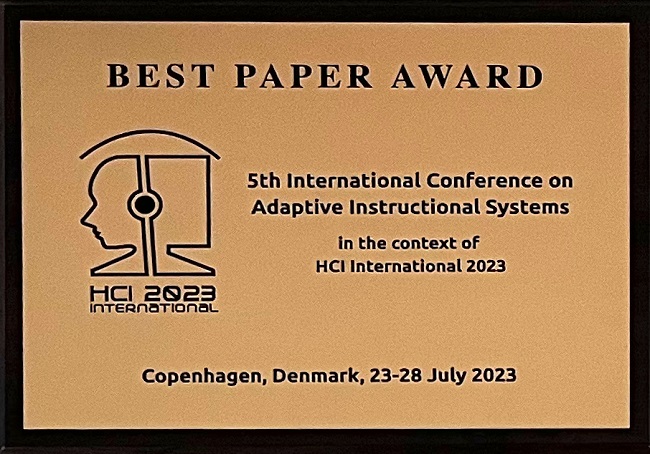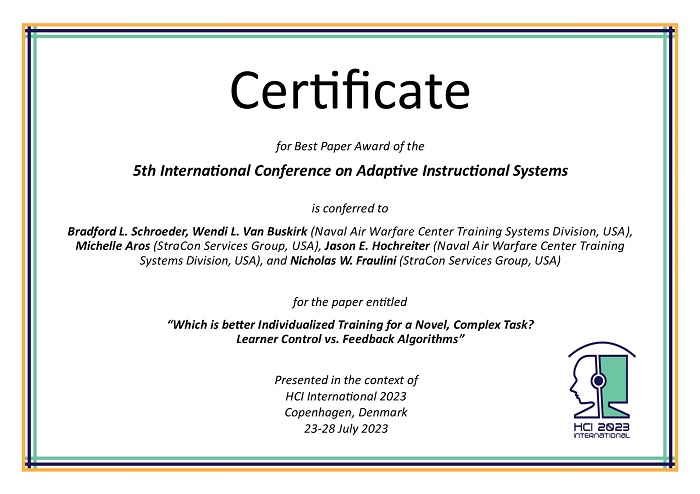
Best Paper Award for the 5th International Conference on Adaptive Instructional Systems, in the context of HCI International 2023, Copenhagen, Denmark, 23-28 July 2023

Certificate for Best Paper Award of the 5th International Conference on Adaptive Instructional Systems
The award has been conferred to
Bradford L. Schroeder, Wendi L. Van Buskirk
(Naval Air Warfare Center Training Systems Division, USA),
Michelle Aros (StraCon Services Group, USA),
Jason E. Hochreiter (Naval Air Warfare Center Training Systems Division, USA), and
Nicholas W. Fraulini (StraCon Services Group, USA)

Bradford L. Schroeder
(presenter)
for the paper entitled
"Which is better Individualized Training for a Novel, Complex Task? Learner Control vs. Feedback Algorithms"
Presented in the context of
HCI International 2023
Copenhagen, Denmark
23 - 28 July 2023
Paper Abstract
"Providing feedback during training can help trainees address errors and deficiencies to improve performance. One method for presenting feedback is to implement adaptive training (AT) algorithms that assess trainees’ performance and present feedback tailored to their current needs. Despite the precision with which adaptive feedback addresses trainees’ needs, this algorithmic approach does not offer trainees agency during training. Providing trainees the opportunity to select their own instructional interventions may facilitate performance gains through increased motivation and improved self-regulatory strategies. Unfortunately, trainees inexperienced in a domain may struggle to choose appropriate feedback as a result of their naiveté. We conducted the present research to examine performance differences between trainees presented algorithm-controlled feedback and those who chose their instruction during an electronic warfare (EW) task. Based on the novel nature of the EW task, we hypothesized trainees receiving algorithm-controlled feedback would display improved performance at immediate (H1) and delayed retention (H2) compared to trainees who choose their feedback. Similarly, we hypothesized a differential effect across groups such that trainees who score higher at pretest would score higher at immediate posttest, but that this effect would be more pronounced for trainees’ choosing their instructional interventions (H3). Our results revealed partial support for H1 and full support for H2 and H3. These results may reflect trainees’ difficulty choosing appropriate feedback in a novel, complex task, as well as increased cognitive load associated with that choice."
The full paper is available through SpringerLink, provided that you have proper access rights.